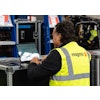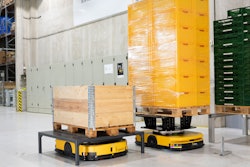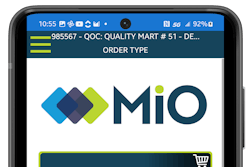
Despite nearly two-thirds (62%) expressing concern over economic uncertainty, in terms of tech preparedness to handle such disruption, 60% remain stuck in implementation on the road to modernization with 69% continuing to rely on outdated manual processes citing complexity (40%) as a reason for the delay, according to a TraceGains survey.
“The clock is ticking for food and beverage brands plagued by outdated ERP software and slow-moving consulting models that no longer serve the needs of today’s market,” says Paul Bradley, senior director of product marketing, TraceGains. “Our latest research confirms a shifting mindset from outdated playbooks to modern solutions capable of delivering impact right away and deployed in weeks, not months.”
Key takeaways:
· 69% of F&B brands still rely on manual processes such as paper documents, spreadsheets, fax, and email to manage day-to-day external work and document exchanges.
· Over half (55%) are either not at all or somewhat automated and optimized.
· Just 6% report having “fully integrated” digital solutions, while 60% admit they're stuck in the implementation phase.
· Nearly one third (29%) acknowledge their current operational management methods are inadequate and inefficient, noting these methods have caused significant internal challenges.
· When asked what keeps them up at night, 62% of F&B leaders cited broader economic concerns. 23% pointed to ingredient and material availability issues and their impact on innovation and new product development.
· Compliance and regulatory concerns were also cited with nearly a quarter (24%) indicating they would fast track the purchase of new technology within 90 days if it was required to meet a mandate. Despite these worries, 82% of companies say implementing new technology remains a top business priority, outpacing other strategic initiatives.
· To improve daily operations and deploy solutions quickly above long-term planning considerations, 57% cited improved process efficiency and ease/speed of implementation as the top factors driving tech adoption decisions; 52% stated they would be most likely to invest in new technology if it delivered immediate operational improvements, outranking return on investment (34%) and overall cost (22%); and 60% indicated they would be significantly or somewhat more likely to adopt a solution if it could be implemented in weeks rather than months. For 40% of respondents, perceived complexity and implementation challenges were the biggest blockers to adopting new tools, outweighing even cost.


















